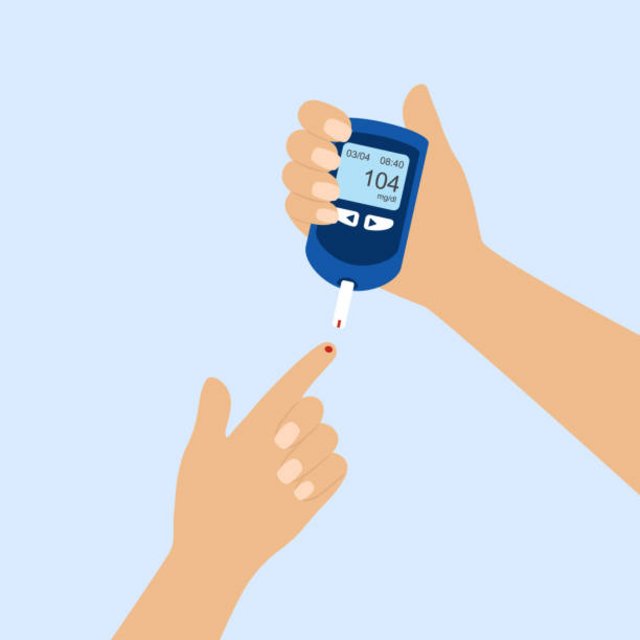The Most Real Causes Of Type 2 Diabetes

A high blood sugar level is linked with serious health issues, including problems that can affect the heart, eyes, and nerves. Type 2 diabetes can be result of being overweight, inactive or eating foods that are processed that are high in salt and sugar.
NYU Langone doctors can diagnose diabetes through blood tests that examine lipids and sugar levels (cholesterol as well as triglycerides). Family history, race as well as age are potential risk variables. Browse through https://www.mojacukrzyca.org/index.php?a=text&id=5414&des=cukrzyca-typu-2-co-powinienes-wiedziec-na-temat-diety-przy-tej-chorobie web site if you need details information all about diabetes.
Weight Loss
The body needs insulin -which is a hormone that functions like a key to let glucose in the blood (called glucose) enter cells and be used for energy. If people are overweight, insulin is less effective and cells can't utilize sugar as energy. Over time, this can lead to elevated glucose levels in the blood.
This is known as insulin resistance. This is most prevalent in middle age and above, but it can be a problem for teens and children with obesity. This type of elevated blood sugar level is known as prediabetes, and it may lead to the development of type 2 diabetes.
Dietary habits that are healthy can stop the progression of type 2 diabetes or at least stop its development. You should eat a balanced eating plan that incorporates fruits as well as whole grains, vegetables and. Reduce the consumption of processed food as well as beverages like soda. It's also a good idea to regularly check-up with the podiatrist who treats your feet, and an opthamologist for your eyes and also a dentist for regular cleanings.
Unhealthy Diet
Maintaining the blood sugar levels within check is vital for people with diabetes. Sugar levels in the blood between meals should range between 70 and 100 milligrams per deciliter (mg/dL). All people need carbohydrates for energy, but those who have type 2 diabetes must be aware of their diet and pick foods which will gradually increase blood sugar levels, like fruits, vegetables and whole grains.
It is also essential to stay clear of trans fats that are present in a variety of processed food items, including the ones that claim to be free of trans fat. In addition, excessive viewing of television has been linked to weight gain and diabetes type. Research has shown that living in communities that have foods that are ready to eat like fast-food establishments and vending machines, are connected to an increased likelihood of having type 2 diabetes. Top-down policies that aim to minimize unhealthy food access could lower the burden of illness for vulnerable populations.
Lack of Exercise
Regular exercise can be beneficial to people who have diabetes. It increases the body's susceptible to insulin, which reduces glucose levels in the blood. Also, it keeps body weight down, increases blood pressure and cholesterol and prevents heart disease.
The main ingredient in glucose is of energy for the body. It is derived from two sources - food and the liver. Insulin is released by the body as it seeks to store more glucose. The condition is known as type 2 diabetes. It's characterized by a less-sensitive body to insulin. Glucose builds up in bloodstream.
According to researchers, people tend to be more susceptible to developing type 2 diabetes when they're overweight or eat the wrong diet. They also need greater exercise. A high BMI and an history of diabetes within the family, as well as being black, Hispanic, Native American or with a Hispanic background can make them more susceptible to developing the disease. The condition is more common in older adults. It is a condition that requires patients to monitor their blood glucose levels with a glucose tester, which is inserted into the skin of the hand or the finger.
Family Histories
The family history of diabetes plays a major role. It is twice as prevalent in people with first-degree relatives than those who do not possess a family background.
Diets that are unhealthy can also contribute to this condition, especially those containing a high amount of trans-fat and saturated fat. Diets that are unhealthy increase insulin resistance which is vital to ensure that blood sugar levels are normal.
The lack of physical activity also raises the chance of developing Type 2 diabetes. Exercise can help the body lose weight, burn sugar for energy, and improve the insulin sensitivity.
Type 2 diabetes can also result from polycystic kidney disease (a hormonal imbalance disorder), gestational diabetic pregnancy along with blood vessel and cardiovascular diseases. Patients with prediabetesan illness in which the blood sugar level is greater than normal but not high enough to warrant being classified as diabetic in a higher chance of developing this disease.